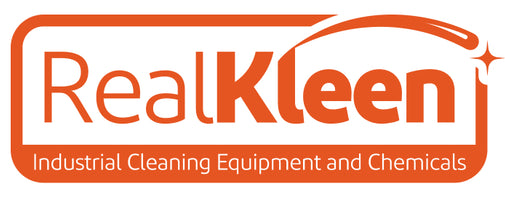
Most Common Pressure Washer Problems & How to Fix Them | 2024 Guide
Pressure washers are incredibly useful tools for both homeowners and professionals. They can make quick work of cleaning driveways, decks, siding, and more. However, like any piece of machinery, they are prone to issues over time. Understanding the most common causes of pressure washer faults can save you time and money on repairs.
Pressure washers combine high-pressure water with various nozzles to remove dirt, grime, and stains from surfaces. Despite their efficiency and power, these machines are not immune to problems. This article will discuss the most common cause of a pressure washer going faulty and offer some tips on how to prevent or fix these issues.
The Most Common Cause: Pump Problems
Why Pumps Fail
The pump is the heart of any pressure washer. It generates the high-pressure water needed for effective cleaning. Unfortunately, it is also one of the most common components to fail. Here are some reasons why:
- Overheating: Running a pressure washer for extended periods without giving it a break can cause the pump to overheat.
- Lack of Maintenance: Failing to regularly check and replace pump oil can lead to wear and tear.
- Water Contamination: Dirt or debris in the water supply can damage internal pump components.
- Cavitation: This occurs when air bubbles form in the water supply line, causing vibrations that can damage the pump.
Signs Your Pump Is Failing
Recognising early signs of pump failure can help you address issues before they become severe:
- Reduced Pressure: If your pressure washer isn’t delivering its usual force, it could be a sign that your pump is failing.
- Strange Noises: Grinding or whining noises often indicate internal damage.
- Water Leaks: Visible leaks around the pump area usually signify worn-out seals or gaskets.
Other Common Issues
While pump problems are prevalent, other factors can also cause your pressure washer to go faulty.
Hose Issues
The hose is another critical component that often faces wear and tear:
- Leaks: Small punctures or cracks in the hose can reduce water pressure.
- Blockages: Debris inside the hose can obstruct water flow.
- Kinks: Frequent kinking weakens hose material over time.
Nozzle Problems
Nozzles control the spray pattern and intensity:
- Clogging: Dirt or debris in nozzles can obstruct water flow.
- Wear and Tear: Over time, nozzles may wear out and need replacement.
Engine Troubles (For Gas-Powered Models)
Gas-powered pressure washers come with their own set of potential issues:
- Fuel Problems: Old or contaminated fuel can cause engine performance issues.
- Spark Plug Issues: A dirty or faulty spark plug may prevent your engine from starting.
Electrical Issues (For Electric Models)
Electric models have their own unique challenges:
- Power Supply Problems: Faulty power cords or outlets may prevent your machine from running.
- Motor Issues: Overheating or electrical faults within the motor itself could be problematic.
Preventative Measures
Preventing issues before they occur is always better than dealing with repairs later on.
Regular Maintenance
Routine maintenance goes a long way in ensuring your pressure washer remains functional:
- Check Oil Levels Regularly: For gas-powered models, ensure you check oil levels frequently.
- Clean Filters: Both air filters (for gas models) and water filters should be cleaned regularly.
- Inspect Hoses: Look for signs of wear and tear periodically.
- Flush System: Run clean water through your system after each use to remove any debris.
Proper Usage Techniques
Using your machine correctly will also prolong its lifespan:
- Avoid running it continuously for long periods; give it breaks to cool down.
- Use appropriate nozzles for different tasks; this reduces strain on both nozzle and pump.
- Always ensure there’s adequate water supply before turning on your machine; this prevents cavitation.
When To Seek Professional Help
While many minor issues can be resolved at home with basic tools and knowledge, some problems require professional intervention:
- Persistent low-pressure issues despite troubleshooting
- Significant leaks around critical components like pumps
- Electrical faults beyond simple cord replacements
- Engine troubles that basic maintenance doesn’t resolve
Professional technicians specialising in pressure washing repair have access to specialised tools and parts necessary for complex fixes.
Understanding what causes a pressure washer to go faulty enables you not only to troubleshoot effectively but also take preventative measures against future problems—especially pumps, as they tend to fail frequently if neglected or improperly maintained. Regular maintenance, coupled with proper usage techniques, will keep running over longer periods, while seeking professional help for complex problems ensures they are resolved safely and effectively.
By staying informed about common causes and solutions related to pressure washer repair, you’ll maximise your investment and enjoy cleaner spaces effortlessly!
Contact RealKleen
Need to repair your pressure washer? Contact us at RealKleen. We have over 40 years’ experience, provide quick and professional pressure washer servicing and repairs, and pride ourselves on our exceptional customer service.

